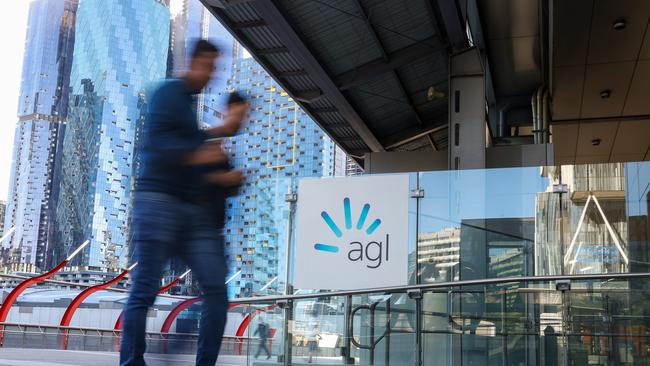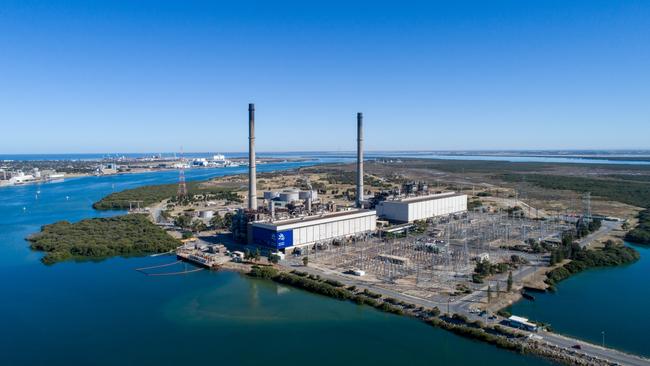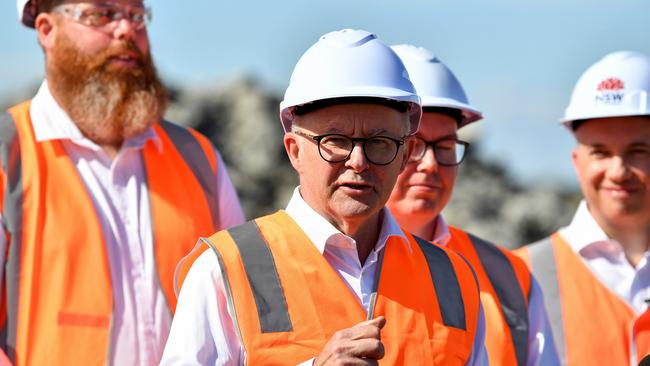Retailers blame price cap for fears over gas supply
Energy retailers have stopped taking on new customers while others have raised prices due to a lack of supply from producers.

Multiple energy retailers across the eastern seaboard have stopped taking new gas customers and others are ramping up their prices as they struggle to secure ongoing supply from producers following the Albanese government’s imposition of a wholesale price cap.
Two of the east coast’s biggest gas producers have kept up their month-long suspension on offering new supplies after the government in December capped new contracts for wholesale gas in the east coast market at $12 a gigajoule for 12 months.
Australia’s second-largest energy retailer, AGL, has been unable to secure contract supply of gas for 2023, prompting it to cease taking new commercial and industrial customers, and forcing those whose contracts are expiring on to expensive default tariffs.
Experts and industry representatives warn that unless the price cap policy is modified or scrapped, retailers will permanently exit the market, making it less competitive in the long term, without any positive impact on prices for households, businesses and industry in the short term.
“AGL’s (commercial and industrial) customers who are not contracted for the period from 1 January 2023 have been placed on to default tariffs,” a spokeswoman for the company said.
Smaller companies are pulling out of the residential market.
Discover Energy says it “will not be providing market offers to new customers until further notice”, with existing customers being moved to standing and default offers as their contracts expire.
Powershop says it has decided to “temporarily pause” gas offerings to new customers while it assesses the impact of the gas price cap.

New market entrant UK-based OVO Energy said it had held back from launching a gas retail offer – despite having had licences to do so for months – because of the government intervention in the market.
“We were aiming to launch early this year, but now are sitting back and waiting to see what happens with the proposed reforms before moving forward with gas,” Australian CEO Mark Yemm said.
“No counterparty is currently willing to sell at the proposed $12 rate, and we’re not even sure how it’ll work in practice when the reforms come into place, since there’s very little that seems to be actual concrete around it right now,” Mr Yemm said.
“So in short, we’re ready to go, and our customers are asking for it, but we’re not doing anything until we know more.”
Key gas producers Shell and Woodside Energy have yet to lift a pause on offering new gas volumes to big customers because of uncertainty over the effect of the government’s legislation.
Labor’s policy places no cap on retail prices, no requirement on gas producers to reserve quantities of gas for the domestic market and no limitation on the prices they can attract on the international market.
Every energy retailer The Australian contacted said they had been unable to secure gas from producers under the $12/GJ price cap.
Energy experts said the government’s consideration of using the ACCC, Australian Energy Regulator or Australian Domestic Gas Supply Mechanism to force producers to supply the domestic market has led to market uncertainty and an unwillingness to enter into new contracts at both a wholesale and retail level.
AGL is still accepting new residential gas customers, but the price of its market offer for an average Victorian metropolitan household using 159MJ a day has gone from $142.42 a month in January 2022 to $191.67 a month now – an increase of more than 35 per cent.
CovaU has no offers available for residential or business gas customers despite holding a licence, while Powerdirect is transferring all its customers to AGL.
TasGas Retail has ramped up its market offer for metropolitan customers in Victoria to $340.83 a month and Sumo to $291.67 a month, based on average household usage of 159MJ a day.
A spokesman for the Australian Energy Council said while the vast majority of gas is contracted, retailers are in the market seeking more contracted supply.
“The complication is that market participants are still trying to understand the full implications of the new laws, so they don’t inadvertently breach them and end up potentially facing severe penalties,” the spokesman said.
“The current situation is unlikely to change in the short term until there is greater clarification.”
Gas Energy Australia CEO Brett Heffernan said his members did not support price caps, despite being price takers in the supply chain.
“The superficial appeal of capping prices is quickly eroded as investment wanes and production falls, leading to sustained higher prices over the longer term and inevitable supply constraints,” Mr Heffernan said. “If the desire is to increase supply, especially during periods of high need, and reduce prices, then price caps do the opposite.”
Deakin Law School professor and energy market expert Samantha Hepburn said it was possible the government would implement further measures should the ACCC and Australian Energy Regulator become aware that producers had ceased entering into new contracts for domestic supply because of the price cap.
The government’s December consultation paper on the policy noted: “The ACCC and AER will be closely monitoring the behaviour of all participants in the wholesale contract market and, if other wholesale gas sellers’ prices are identified as being excessive relative to their costs, the scope of the price cap could be expanded.”
Professor Hepburn said the government’s mandatory code of conduct for the gas industry also included obligations on both producers and purchasers to act in good faith, requirements for gas producers to publish or otherwise make offers broadly available to the domestic market, a reasonable pricing provision, and requirements for gas producers to disclose certain information when issuing expressions of interest or making offers to enter into a gas contract, such as the factors considered in determining the price.
However, Professor Hepburn said: “There is nothing in the code that directly compels gas producers to offer gas to domestic consumers.
“If gas producers are found to be actively avoiding negotiating with domestic consumers because of the price cap it may mean further measures will need to be taken.
“In my opinion this may include a domestic reservation policy, which compels producers to reserve a percentage of domestic gas for domestic consumers. This could be similar to that which has been implemented in Western Australia.”
Grattan Institute climate change and energy program director Alison Reeve said the government was still consulting with industry on the mandatory code of conduct.
“If suppliers don’t know what (the reasonable pricing) provision is, it would be difficult to write a multi-year contract,” Ms Reeve said.
“If they assume a future higher price, they may get caught out if that price is later determined to be ‘unreasonable’. If they assume $12/GJ continues, they may miss out on profits.
“Suppliers won’t want to contract until they get more certainty about what the ‘reasonable price’ is.

“Hopefully that is resolved soon and contracting resumes.”
Ms Reeve noted that one option available to the government would be for the Resources Minister to use the Australian Domestic Gas Security Mechanism to block exports if there is a potential shortage of gas in the domestic market.
“Presumably then suppliers would rather get $12/GJ than nothing,” she said.
A spokeswoman for Energy Minister Chris Bowen said the “Energy Price Relief Plan” would “limit gas and coal prices, provide targeted energy bill relief for households and businesses, and drive investment in cleaner, cheaper, and more reliable energy”.
“The gas price cap is expected to put downward pressure on forecast price increases as these changes flow through to retail supply contracts, reducing average price increases by two percentage points during 2022-23 and by 16 percentage points in 2023-24,” the spokeswoman said.
“The government expects the gas price cap to flow through to Australian consumers and the ACCC will continue to closely monitor gas markets to ensure that energy companies are doing the right thing and consumers are paying a fair and reasonable price for Australian gas.
“The government is also accelerating reforms to the Australian Domestic Gas Supply Mechanism to better address any emerging domestic gas supply shortfalls, while ensuring that existing commitments to our important trading partners in the region are honoured.
“The ADGSM remains a measure of last resort to protect Australia’s domestic energy security and the government fully expects gas producers to meet their obligations and supply Australians with sufficient gas for their needs.”
The Australian Petroleum Production and Exploration Association, which represents gas producers, declined to comment.








To join the conversation, please log in. Don't have an account? Register
Join the conversation, you are commenting as Logout